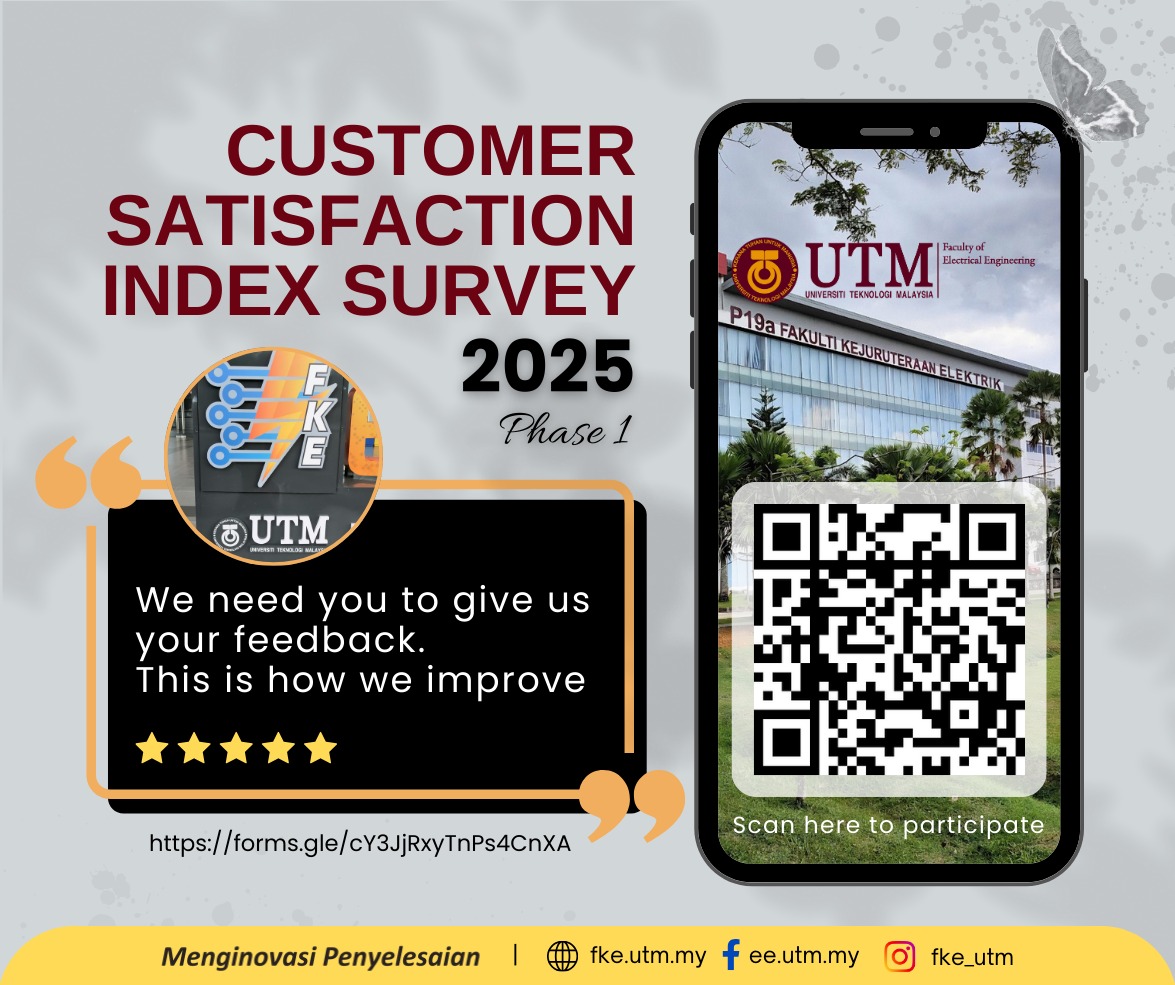The final product evaluation session for the Capstone Project (undergraduate students’ final year laboratory project, codenamed SKEE 4722) for the academic session 2016/17 was successfully conducted by the Department of Electrical Power Engineering (POWER) on 05 December 2016 at the Faculty of Electrical Engineering, Universiti Teknologi Malaysia. There were 19 exciting products showcased during the event. Each product was developed by a group of 4 students within a 12-week duration in an attempt to identify and solve industry/community related problems. The themes of the projects were: “Electrical Educational Kit”, “Effective Utilization of Energy Resources”, “Waste Segregation System for Industries/Residential Premises”, “Innovative Home Energy System” and “Electric Motor Drives for Conventional Vehicles”. Each product was evaluated by 3 academic panels from the POWER department and 1 external panel from either the industry or the community. There were a total of 6 external panels involved in the evaluation, i.e., Ir. Mohd Aizam Talib (Tenaga Nasional Berhad Research, Kajang), Ir. Khairull Amrey Abu Seman (Jabatan Kerja Raya, Kuala Lumpur), Ms. Raja Faraazlina Raja Mohamed Junior (Kolej Komuniti, Bandar Penawar), Mrs. Izzatul Wafa Burhanuddin Hayati (Tenaga Nasional Berhad, Kluang), Mr. Muhamad Syazwan mohd Salleh (Tenaga Nasional Berhad, Pasir Gudang) and Mrs. Norazlina Bahari (SWCorp, Johor Bahru). The evaluation ended with six outstanding products chosen among the themes. Through the implementation of the Capstone project, the faculty hopes that its final year undergraduate students will have the opportunity to integrate their technical knowledge and generic skills attained in their earlier years of undergraduate study.
Selected photos during the evaluation session:






About Captone Project
The implementation of the Capstone Project for the POWER department first commenced since the academic session 2015/16. The course provides the final year undergraduate students the opportunity to integrate technical knowledge and generic skills attained in the earlier years of study. The course must be completed within the context of an engineering project conducted in a group of students from different electrical engineering programs (power, communication, electronic and mechatronic) under a supervision of an academic staff as the facilitator. Topics supplementing the course include project management tools and practices, organizational structures, engineering standards as well as the social and environmental responsibility of professional engineers are covered in the courses offered prior to or concurrent with the course such as in Professional Ethics and/or Engineering Management course. In general, from Week 1 to Week 4, students need to identify their collaborator/end-user and collect data/information from them. Then, based on the feedbacks and data acquired from collaborators/end-user, each group has to brainstorm to come out with various ideas or designs and costing for the proposed project. The design should consider social/culture, technological analysis, economic, environmental, ethical, health, safety, sustainability, political and social impacts. In Week 5, the developed conceptual designs/prototypes/models have been presented to show the working principle and function of the proposed design during the first evaluation session. In Week 6 to Week 12, the students re-evaluated their conceptual designs/prototypes/models and the final products have to be presented in the 13th week. More details about Capstone Project can be found here:
http://capstone-project.fke.utm.my/home
by Dr. Zulkarnain Ahmad Noorden, Universiti Teknologi Malaysia


